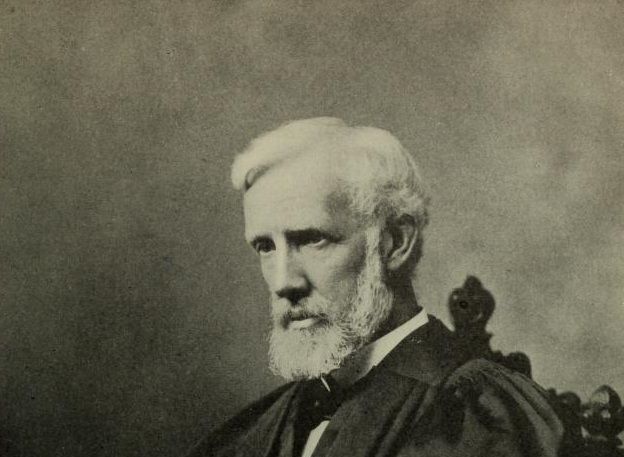Fionnula Flanagan (Aunt Maggie Far Away) and Mark Lambert (Uncle Patrick Carney) in "The Ferryman." PHOTO BY JOAN MARCUS
By Orla O’Sullivan
Broadway’s Bernard B. Jacobs Theatre was full on a cold January work night for a play that did not end until near 11 p.m. and, when it did, it brought the audience to its feet.
More notable than the standing ovation, which is almost obligatory nowadays, is the fact that the play has been extended to July from a run that was to finish next month.
It’s also tipped for a Tony award, having one an Olivier for Best New Play during its West End run.
Time magazine has it ranked second among the 10 best theatre productions of 2018.
I wouldn’t go quite that far. “The Seafarer” at the Irish Rep topped my 2018 viewings, but given several parallels, you could argue that “The Ferryman” is its Hollywood cousin. In both, there’s a dangerous crossing with the action occurring mostly over a 24-hour odyssey. There’s an ominous reckoning triggered by an unwanted visitor to a traditional party, a philosopher, references to the supernatural. However, the plays differ in themes and scope: “The Seafarer” is intimate, “The Ferryman” an extravaganza.
Most reviewers of the latter have been effusive, dubbing the show “glorious” (Variety and New York Times) “exhilarating” (Washington Post) and “a triumph” (Time Out).
I would tend to agree, on the other hand, with the New York Observer’s assessment that the play “leans on Irish clichés” and with my viewing companion’s view that it has many touches of the sit-com. But even he felt that the roughly three-hour play flew by. That this production could command such attention from today’s screen-distracted audiences—defying the new norm of hour-long, no-intermission shows—tells you something.
“The Ferryman” is a highly entertaining play, and I’m glad I went to see what the hype was about. There’s a strong, sweeping cast; several story lines, each engaging in their own right; a memorable dance scene to the pulsating beat of The Undertones’ “Teenage Kicks”; and a few bursts of theatricality just for fun: live animals, babies and burning items all on stage.
The Undertones are very apt for this play, set during The Troubles around the time of the hunger strikes in 1981. It opens with a body being found—an alleged IRA informant who was executed a decade earlier. All kinds of truths and conflicts will be dug up with him.
Immediately, the audience is drawn in to the opening scene. A priest (Colin McPhillamy, that performance) has been summoned to meet an ominous, high-status type (Stuart Graham). “Do you know me?” Priest: “No.” “I’m going to ask you that question again and you’re going to answer as best you can, okay? Do you know me?” Priest: “Yes.”
Switch from this scene to a couple getting comically drunk in a large farmhouse.
Before these worlds collide, the sun comes up; eight children, a wife, and several elderly members of the extended family emerge. Preparations begin for the arrival of young cousins who come every year from town to help with the harvest.
Surely there will be reaping of what has been sowed in a play layered in symbolism? Another big symbolic element is Tom Kettle, the proverbial gentle giant of whom the kindly uncle (Mark Lambert) says, “I wouldn’t say he’s slow so much as unhurried”.
Edwards’s acting stood out, as did Tom Glynn-Carney’s dancing.
Among understudies who stepped in on the night we saw the play, Gina Costigan shone in the pivotal role of Caitlin Carney. She’s central to both the gangster tale and the love story in this play. The understudy for her brother-in-law and family patriarch, Quinn Carney (Dean Ashton) could not match her.
The character of Johnny evokes Lenny in “Of Mice and Men” and represents every innocent swept up by larger forces in times of war.
It’s a minefield of spoiler alerts to say much more about what unfolds.
When I heard of Englishman Jez Butterworth’s play I was leery of someone who is not Irish tackling the too often romanticized Troubles. (Before this 2107 work, the multiple award-winning playwright had “Jerusalem” produced on Broadway in 2010.)
O-irish moments included young children eagerly drinking whiskey in the evening, dancing jigs and alternating between family Von Trapp moments and saying “f*** me blue.”
Still, it’s hard to resist this play, especially as it moves into more serious drama in act two.
“The Ferryman” evokes the character in Roman mythology that demands the dead pay a price for safe passage of their souls. Will they make it?
“The Ferryman” by Jez Butterworth, directed by Sam Mendes at the Bernard B. Jacobs Theatre, has been extended to July 7. The Broadway ensemble includes Irish-born actors Dearbhla Molloy, Fionnuala Flanagan, Gina Costigan and Conor MacNeill. Tickets from telecharge.com









